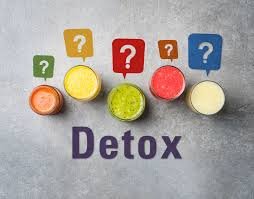In our modern world, we’re constantly exposed to various toxins that can negatively impact our health. From the food we eat to the air we breathe, these harmful substances can accumulate in our bodies, leading to fatigue, digestive issues, skin problems, and more. That’s why detoxing has become an essential part of many wellness routines. But did you know there are different types of detox that target specific toxins? Let’s explore some of the most popular detox methods and how they can help you feel your best.
1. Heavy Metal Detox
Heavy metals like lead, mercury, arsenic, and cadmium are found in everything from polluted air and water to certain foods and household products. Over time, these metals can accumulate in the body, leading to neurological, immune, and digestive issues. A heavy metal detox typically involves using specific foods, herbs, and supplements to help the body safely eliminate these toxic metals.
How to reduce exposure to heavy metals:
Eat organic, clean food: Choose organic fruits and vegetables to reduce exposure to pesticides that may contain heavy metals.
Avoid seafood high in mercury: Limit your consumption of large fish such as tuna, swordfish, and shark.
Drink filtered water: Invest in a water filter that removes heavy metals and other contaminants.
2. Parasite Detox
Parasites can enter the body through contaminated food, water, pets or poor hygiene practices. Symptoms of a parasite infection can include fatigue, bloating, digestive issues, and skin rashes. A parasite detox focuses on cleansing the body of harmful microorganisms and supporting gut health. This type of detox usually includes herbal treatments like black walnut, wormwood, and cloves, which are known for their antiparasitic properties.
How to reduce exposure to parasites:
Practice proper food hygiene: Always wash fruits and vegetables thoroughly, and cook meat to the appropriate temperature.
Drink purified water: Ensure your drinking water is free from contaminants, including parasites.
Maintain good hygiene: Wash your hands regularly, especially before eating or preparing food.
3. Candida Detox
Candida is a type of yeast that naturally resides in our gut, but when overgrown, it can lead to an imbalance that affects digestion, immune function, and overall health. A candida detox helps restore the balance of gut flora by eliminating sugar and processed foods, which feed the yeast. This type of detox often includes a diet rich in health meats, healthy fats, and fermented foods that support beneficial bacteria.
How to reduce exposure to candida:
Cut out sugar: Candida thrives on sugar, so minimizing your intake of sugary foods, refined carbs, high sugar fruits and vegetables, and alcohol can help keep it under control.
Support gut health: Eat probiotics and prebiotics to promote a healthy gut microbiome and prevent the overgrowth of harmful bacteria and yeast.
Eat whole, nutrient-dense foods: Focus on whole, unprocessed foods that nourish your body and support your immune system.
4. Liver Detox
The liver is the body’s primary detoxification organ, but it can become overloaded with toxins from food, alcohol, medications, and environmental pollutants. A liver detox helps support the liver’s ability to filter out waste and toxins by using herbs like milk thistle, dandelion root, and turmeric.
How to reduce liver toxins:
Limit alcohol and processed foods: Reducing your intake of alcohol, sugary foods, and processed snacks can ease the burden on your liver.
Increase fiber intake: Fiber-rich foods help support digestion and assist in the elimination of toxins through the digestive system.
Stay hydrated: Drinking plenty of clean water helps your liver function efficiently and flushes toxins out of your system.
5. General Toxin Reduction
Beyond specific detox methods, there are simple lifestyle choices that can significantly reduce your overall toxin intake:
Choose natural cleaning products: Many conventional cleaning products contain harmful chemicals that can be absorbed through your skin or inhaled.
Use toxin-free personal care products: Opt for natural, chemical-free beauty products like shampoos, lotions, and deodorants.
Go organic when possible: Organic foods are free from pesticides, herbicides, and other chemicals, which can help minimize your exposure to harmful toxins. Enjoy a few hours at your local farmers market and speak with the venders about the quality of their food. We have some great ones in Jacksonville!
Minimize plastic use: Plastics/microplastics can leach toxic chemicals into your food and drinks, so try to use glass or stainless steel containers instead.
A Holistic Approach to Detox
Each type of detox can play a vital role in supporting your health, but it’s important to take a holistic approach. By adopting a cleaner lifestyle, reducing toxin exposure, and incorporating detox strategies, you can help your body function at its best. Whether it’s eliminating heavy metals, parasites, or candida, or simply supporting your liver, detoxing can be an empowering way to revitalize your health, but it should be done carefully and with the help of a qualified professional!
I hope these emails add value to your care at our office and allow you to REVIVE your health! Until next time...
Yours in Health,
Dr. Zack Stalnaker

